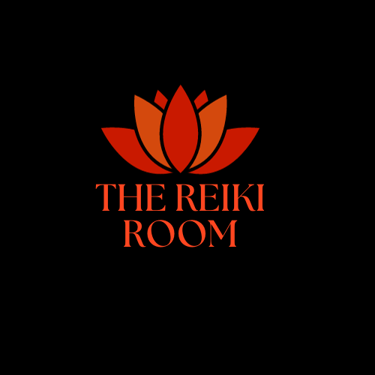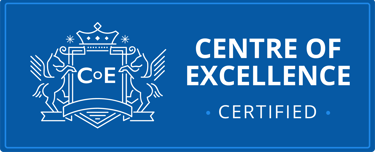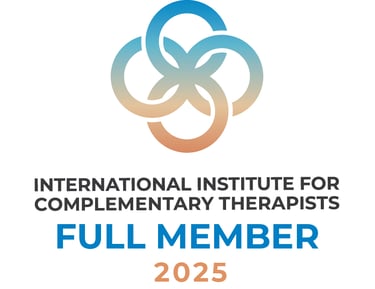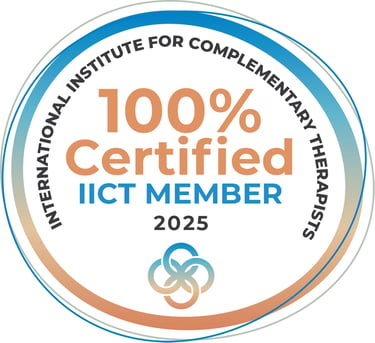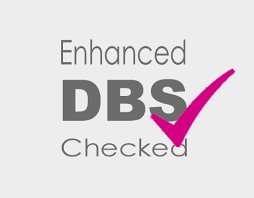Frequently asked questions
What is the Usui System of Natural Healing/Reiki Energy Healing?
Usui Shiki Ryoho - the Usui System of Natural Healing - is a Japanese Healing Art. This form was founded in Japan in the early 1900's by Dr Mikao Usui, whose personal search to understand healing led him to Reiki. The healing art is passed on from Master to student through teachings, a defined form of practice and initiation.
The Japanese word Reiki is often translated as 'spiritual energy'. Rei is translated as 'soul', 'spirit'-the Higher Intelligence that guides the creation and functioning of the Universe. Ki is the life-force energy that flows through every living thing. The Usui System is a way of working with Reiki to promote healing, well-being, growth and spiritual deepening. We live in a universe of energy that cultivates and supports all living things- people, plants and animals. When energy or 'Ki' (also known as 'prana' or 'chi' in other cultures), flows uninterrupted, balance and harmony is restored. The Usui System of Natural Healing addresses the whole person on all levels- physical, emotional, mental and spiritual, therefore, the word 'healing' is used in the sense of regaining wholeness and restoring coherence. It is a totally safe, natural, gentle, non-intrusive, hands-on or distance healing technique that induces deep relaxation which promotes the body's natural self-healing abilities. It can also be used to develop personal and spiritual awareness and growth, guiding those on a path of spiritual awakening.
How does Reiki Energy Healing work?
We are alive because life force energy flows through us. This energy travels within our bodies through pathways known as chakras, meridians, and nadis, and also surrounds us in an energy field called the aura. Life force energy nourishes our organs and cells, helping them perform their vital functions. When this energy flow is disrupted, it can lead to reduced function in our organs, cells and tissues.
Life force energy is influenced by our thoughts and emotions. Negative thoughts and feelings, whether we are aware of them or not, can disrupt this energy flow by attaching to our energy field. This disruption impacts the functioning of our organs, cells and tissues.
Reiki heals by channeling positive energy into the affected areas of the energy field, increasing the vibratory level around and within the body where negative energies are attached. This process breaks apart and removes the negative energy, clearing and healing the energy pathways. As a result, the life force can flow freely and naturally once again.
What are the benefits of Reiki Energy Healing?
Reiki can benefit you physically, mentally, emotionally, and spiritually. You don’t have to be sick to receive Reiki!
Physically- Reiki can aid with ailments, chronic and acute illnesses, pain, First Aid, and it can strengthen the immune system while alleviating medication side effects.
Mentally- Reiki helps to reduce the symptoms of short and long-term stress, anxiety and depression by inducing deep relaxation which in turn promotes the body to heal itself
Emotionally-Reiki can ease and balance issues such as depression, insomnia, lack of confidence, and anxiety. Clients often report feeling more in control, at ease, calmer, and better able to cope with stress.
Spiritually- Reiki can enhance your sense of connection to your purpose, bringing a general feeling of well-being, contentment, and fulfilment. Increased mindfulness and presence are wonderful and positive ‘side effects’ of Reiki.
How is a Reiki Energy Healing treatment given?
In a standard Reiki treatment, energy flows from the practitioner's hands into the client. Typically, the client lies on a massage table, but treatments can also be performed while the client is seated or standing. The client remains fully clothed throughout the treatment. The practitioner places their hands on or near the client's body in various positions, including around the head and shoulders, stomach, and feet. Additional, more specific hand positions may be used based on the client's individual needs. Each position is held for three to ten minutes, depending on how much Reiki the client requires. The entire treatment usually lasts between 45 and 60 minutes.
Are there any side effects from a Reiki Energy Healing treatment?
After a Reiki treatment, some clients might experience what's known as a 'healing crisis' or 'Reiki hangover'. This temporary state is a sign that your body is undergoing a detoxification and healing process.
What to Expect
Physical Symptoms:
Headaches: A common response as toxins are released from the body.
Fatigue: You might feel unusually tired as your body works to heal and restore balance.
Flu-like Symptoms: Some clients report feeling like they have a mild flu, with muscle aches and slight chills.
Emotional Symptoms:
Mood Swings: Feelings of sadness, irritability, or even unexpected bouts of crying.
Heightened Emotions: You might find yourself more sensitive or emotional than usual.
Mental Symptoms:
Mental Clarity or Fog: While some may experience a sense of mental clarity, others might feel a bit foggy or scattered.
Vivid Dreams: Your subconscious might be processing the energy shifts, leading to more vivid or intense dreams.
Why Does This Happen?
Energy Shifts: Reiki works by balancing the energy within your body. As blockages are cleared and energy starts flowing freely, your body begins to release stored toxins and emotions, leading to temporary discomfort.
Detoxification: Just as detoxifying from certain substances can cause temporary symptoms, so can releasing energetic toxins.
How to manage a 'healing crisis' or 'Reiki hangover'
Hydration: Drink plenty of water to help flush out toxins from your body.
Rest: Allow yourself to rest more than usual. Listen to your body’s signals and take naps if needed.
Self-Care: Engage in gentle activities that promote relaxation and well-being, such as warm baths, meditation, or gentle yoga.
Positive Signs of Healing
Temporary Discomfort: Remember, these symptoms are temporary and indicate that your body is healing and adjusting to the energy shifts.
Long-Term Benefits: Clients who experience a healing crisis often report feeling much better afterwards, with increased energy, emotional balance, and a greater sense of well-being.
Do I have to stop seeing a regular doctor or psychologist to receive Reiki Energy Healing?
No. Reiki complements regular medical or psychological treatment. If you have a medical or psychological condition, it is recommended to see a licensed healthcare professional in addition to receiving Reiki treatments, each client will be assessed individually before treatment is agreed. Reiki energy works harmoniously with all other forms of healing, including medication, surgery, psychological care, and other alternative methods, enhancing their effectiveness.
How does Distance Reiki Energy Healing work?
Distance Reiki, also known as remote Reiki, is a method where the practitioner sends healing energy to a client who is not physically present. This practice is based on the principle that energy is not confined by time or space, allowing Reiki to be sent and received regardless of physical distance. Practitioners are attuned to channel Reiki Energy Healing and are given sacred symbols to empower this energy. One of these sacred symbols is the Distant symbol which in the session along with intention and visualisation, enables the practitioner to treat any client anywhere in the world. (Much like a radio being tuned into a channel and being able to broadcast anywhere in the world!).
During the treatment, the client may experience sensations such as warmth, tingling, or a sense of deep relaxation. These sensations indicate the flow of Reiki energy. Many clients report positive outcomes from distance Reiki, such as reduced stress, improved emotional well-being, and physical relief. The effectiveness is supported by the practitioner's intention and the client's openness to receiving the energy.
Benefits of Distance Reiki
Accessibility: Clients can receive healing without the need to travel, making it accessible for those with physical limitations or busy schedules.
Comfort: Receiving Reiki in one’s own environment can enhance relaxation and comfort.
Flexibility: Distance Reiki can be scheduled at convenient times, even if the practitioner and client are in different time zones.
What does a Reiki Energy Healing treatment feel like?
Everyone's experiences during a Reiki treatment varies somewhat from person to person. However, feelings of deep relaxation are usually felt by all. In addition, many feel a wonderful glowing radiance that flows through and surrounds them. As the Reiki energy encourages the release of tension, anxiety, fear or other negative feelings a state of peace and well-being is experienced. Some drift off to sleep or report floating outside their bodies or have visions and other mystical experiences. Some do not feel anything, either way the Reiki is still working. At the end of the treatment, you will feel refreshed with a more positive, balanced outlook.
How do I prepare for a Reiki Energy Healing treatment?
Preparing for a Reiki treatment can help you get the most out of the experience. Here are some simple steps to ensure you're ready:
1. Choose Comfortable Clothing
Wear loose, comfortable clothing. This helps you relax and allows the energy to flow freely.
2. Hydrate
Drink plenty of water before your treatment. Staying hydrated helps your body’s energy channels work efficiently.
3. Eat Lightly
Have a light meal a couple of hours before your treatment. Avoid heavy or rich foods that might make you feel sluggish.
4. Set an Intention
Think about what you want to achieve from the treatment. Whether it's stress relief, emotional balance, or physical healing, setting a clear intention can focus the Reiki energy on your specific needs.
5. Turn Off Electronics
Switch off your phone and other electronics to minimise distractions and help you fully relax.
6. Relax and Keep an Open Mind
Approach the treatment with an open mind and a willingness to receive the healing energy. Let go of any expectations and simply be present in the moment.
By following these steps, you can ensure a more effective and enjoyable Reiki experience.
What should I do after my session?
After your Reiki treatment, it's essential to take care of yourself to maximise the benefits. Here's what you can do:
Hydrate: Drink plenty of water to help flush out toxins and support your body's healing process. Avoid alcohol and caffeine.
Rest: Allow yourself to rest and relax. Take a nap if you feel tired, and avoid strenuous activities for the remainder of the day.
Reflect: Take some time to reflect on your treatment. Notice any physical sensations, emotions, or insights that arose during the treatment.
Journal: Consider journaling about your experience. Write down any thoughts, feelings, or sensations you observed during the treatment.
By following these simple steps, you can support your body's healing process and enhance the benefits of your Reiki treatment.
What is Mindfulness?
Mindfulness is a mental practice that involves being fully present and engaged in the present moment, without judgment or attachment to thoughts or emotions. Here's a breakdown of what mindfulness entails:
Present Moment Awareness: Mindfulness involves focusing your attention on the present moment, rather than dwelling on the past or worrying about the future. It's about being fully immersed in whatever you're doing, whether it's eating, walking, or simply breathing.
Non-Judgmental Awareness: With mindfulness, you observe your thoughts, feelings, and sensations without judging them as good or bad. Instead of reacting automatically to your experiences, you cultivate an attitude of curiosity and acceptance.
Acceptance and Compassion: Mindfulness encourages an attitude of self-compassion and acceptance toward yourself and others. Rather than striving for perfection or trying to control every outcome, you learn to embrace life's ups and downs with kindness and understanding.
Awareness of Body and Breath: Mindfulness often involves paying attention to your body and breath as anchors for your awareness. By tuning into the physical sensations of your body and the rhythm of your breath, you can ground yourself in the present moment and cultivate a sense of calm and stability.
Cultivating Presence: Through regular mindfulness practice, you can train your mind to become more present and attentive in everyday life. This can help reduce stress, enhance focus and concentration, and improve overall well-being.
What are the benefits of Mindfulness?
Mindfulness practice offers numerous benefits that span mental, emotional, and physical health. Here are some of the key benefits:
Mental Health Benefits
Reduced Stress: Mindfulness helps in lowering cortisol levels, which is a hormone associated with stress. Regular practice can lead to a significant reduction in overall stress.
Improved Focus and Concentration: Mindfulness enhances attention span and cognitive flexibility, making it easier to stay focused on tasks and improve productivity.
Better Emotional Regulation: Practicing mindfulness helps individuals become more aware of their emotions, allowing them to manage and respond to them more effectively.
Emotional Benefits
Reduced Anxiety and Depression Mindfulness-based therapies have been shown to reduce symptoms of anxiety and depression.
Enhanced Emotional Well-being: Mindfulness practice fosters a greater sense of well-being, increasing feelings of happiness and contentment.
Increased Empathy and Compassion: Mindfulness cultivates a more compassionate attitude towards oneself and others, which can improve interpersonal relationships.
Physical Health Benefits
Lower Blood Pressure: Regular mindfulness practice can lead to reductions in blood pressure, contributing to better heart health.
Improved Sleep Quality: Mindfulness techniques help improve sleep patterns, making it easier to fall asleep and stay asleep.
Enhanced Immune Function: Mindfulness has been linked to increased activity in the prefrontal cortex, which is associated with greater resilience and immune function.
Cognitive Benefits
Enhanced Cognitive Function: Mindfulness practice can improve memory, executive functioning, and the ability to process information.
Neuroplasticity: Regular mindfulness practice can lead to structural changes in the brain, promoting neuroplasticity and improving cognitive resilience.
Social Benefits
Better Relationships: Mindfulness fosters better communication, empathy, and understanding in relationships, enhancing social connections and reducing conflicts.
Increased Social Awareness: Being mindful helps individuals become more aware of social dynamics and their role within them, promoting healthier social interactions.
Spiritual Benefits
Greater Self-Awareness: Mindfulness encourages a deeper understanding of oneself, which can lead to personal growth and self-acceptance.
Enhanced Sense of Presence: Mindfulness brings a heightened sense of presence and connection to the present moment, contributing to a more fulfilling life.
Are there any side effects of Mindfulness?
While mindfulness practice is generally considered safe and beneficial, there can be some side effects for certain individuals, especially if not practiced correctly or if pre-existing mental health conditions are present. Here are some potential side effects:
Psychological Side Effects
Emotional Overwhelm: Mindfulness can sometimes bring up suppressed emotions, which can be distressing. Becoming acutely aware of negative thoughts and feelings can be overwhelming for some, leading to emotional distress.
Re-experiencing Traumatic Memories: For those with a history of trauma, mindfulness can sometimes trigger the re-experiencing of traumatic memories, which can be unsettling and distressing.
Social and Behavioural Side Effects
Changes in Relationships: As individuals become more mindful, they may become more aware of unhealthy aspects of their relationships, which can lead to changes or conflicts.
Understanding potential side effects and practicing under guidance can help ensure a safe and positive experience.
Is Reiki Energy Healing safe for pregnant women?
Reiki is a gentle, non-invasive healing practice that is safe for pregnant women at all stages of pregnancy. Here's why Reiki can be a beneficial and comforting practice during this special time:
Benefits of Reiki for Pregnant Women
Stress Relief: Pregnancy can bring about various physical and emotional changes that may lead to stress and anxiety. Reiki promotes deep relaxation, helping to alleviate stress and create a sense of calm and well-being.
Physical Comfort: Reiki can help ease common pregnancy discomforts such as back pain, headaches, and nausea. It supports the body's natural healing processes and can provide relief from these symptoms.
Emotional Balance: Hormonal changes during pregnancy can lead to mood swings and emotional fluctuations. Reiki helps to balance emotions, providing a sense of stability and emotional well-being.
Connection with Baby: Many pregnant women report feeling a stronger connection with their baby during and after Reiki treatments. The calming energy of Reiki can enhance the bond between mother and baby.
Reiki's Non-Invasive Nature
No Physical Manipulation: Reiki involves the practitioner placing their hands lightly on or just above the body, without any physical manipulation. This makes it completely safe for both the mother and the baby.
Energy Healing: Reiki works with the body's energy field to promote healing and balance. It does not interfere with any medical treatments or procedures.
Supporting a Healthy Pregnancy
Complementary to Medical Care: Reiki is a complementary therapy that can be used alongside regular prenatal care. It does not replace medical treatments but supports overall health and well-being.
Customisable Treatments: Reiki treatments can be tailored to address specific concerns or discomforts that a pregnant woman may be experiencing. The practitioner can focus on areas where the client feels the most need.
What to Expect During a Reiki Treatment
Comfortable Environment: Treatments are conducted in a comfortable and relaxing environment. Pregnant women can lie on their side or sit in a chair, depending on what is most comfortable for them.
Gentle Touch: The practitioner uses gentle hand placements to channel healing energy, ensuring a soothing and peaceful experience.
Reiki offers numerous physical, emotional, and spiritual benefits. It supports the body's natural healing processes, enhances emotional balance, and fosters a deeper connection with the baby. However, as with any new practice, it’s advisable to consult with a healthcare provider, especially if there are any concerns or pre-existing conditions.
Is Mindfulness safe for pregnant women?
Yes, mindfulness is generally considered safe and beneficial for pregnant women. Here are some reasons why mindfulness can be a positive practice during pregnancy:
Reduced Stress and Anxiety: Mindfulness practices, such as meditation and mindful breathing, can help reduce stress and anxiety, which are common during pregnancy.
Improved Emotional Well-being: Mindfulness can enhance emotional regulation and well-being, helping pregnant women manage the emotional changes and challenges that can arise.
Better Sleep: Practicing mindfulness can improve sleep quality, which is often disrupted during pregnancy.
Enhanced Bonding with the Baby: Mindfulness can help pregnant women connect more deeply with their baby, fostering a sense of bonding and attachment.
Pain Management: Mindfulness techniques can help manage pain and discomfort associated with pregnancy, labour, and delivery.
Mindfulness is generally safe for pregnant women and can offer numerous benefits for both mental and physical health. However, as with any new practice, it’s advisable to consult with a healthcare provider, especially if there are any concerns or pre-existing conditions.
Kendal, South Lakeland, Cumbria, UK
CONTACT
adella@thereikiroomkendal.com
07861 175260
CONTACT
07861 175260
adella@thereikiroomkendal.com
Kendal, South Lakeland, Cumbria, UK
